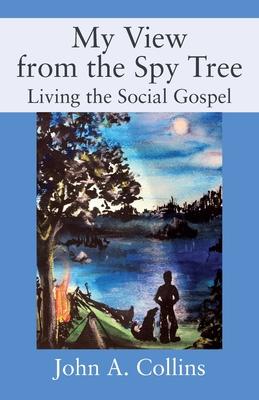A life at the intersection of justice and peace...
Reverend John A. Collins grew up in the all-white Chicago neighborhood that stoned Martin Luther King, Jr. when he led a march for fair housing there in 1966. Yet he was to devote his adult life to the support for racial justice, and as a white clergyman who served Black churches in the inner-city, he was beloved by his parishioners. It was not until his mid-thirties, however, that he found his calling, after having served as a Navy lieutenant aboard an aircraft carrier in the Korean War and two years as a lawyer in Chicago. But his ministry was not confined to the pulpit. As a founder of the Student Interracial Ministry, it would take him into the Civil Rights Movement in the Deep South, into support for Lyndon Johnson's War on Poverty, and into the campaign against redlining and the deindustrialization of the Midwest. This military veteran would also become an ardent peace activist, leading an effort to stop U.S. deployment of cruise missiles in Europe; and as a founder of Witness for Peace he would lend his support to victims of the U.S.-funded Contra War in Nicaragua. While a young boy summering at his parents' cottage among the Indiana Dunes on Lake Michigan, he would often climb a tree he called his "spy tree" to look out over the world he knew then: his neighborhood of small cottages and down to the lake. Little did he know then that his neighborhood would expand beyond the perimeters of a boy's vision to encompass so much of the world.
We all hear the great names in the civil rights, peace, and poor people's movements, but it is often those whom we do not know that have the greatest and most lasting impact. John Collins is such a one, and his story deserves to be heard. Here he has told it humbly and well, often enlightening the reader by setting the record straight on wrongly maligned programs. But perhaps above all, he reminds us how justice can never be separated from community and care.
